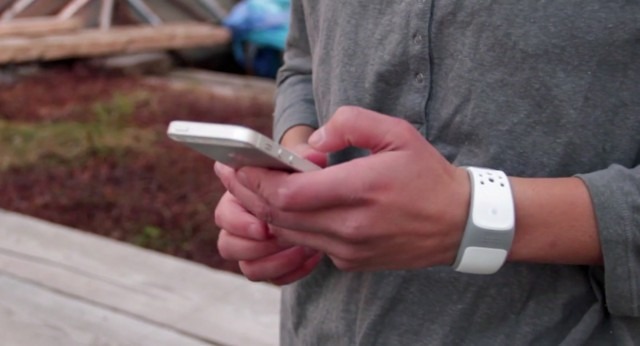This app tells you which friends stress you out, make you happy

Apps and wearables make it easy to track everything about your life — steps walked, hours slept, your heart rate. But a new app called pplkpr aims to quantify your relationships, collecting data about your social interactions and stripping it down to determine how you really feel when you talk to certain people.
Developers Lauren McCarthy and Kyle McDonald launched the app (pronounced “people keeper”) to allow users to look at spikes in stress or excitement levels when interacting with others.
It might be obvious that a phone call with mom might kick your heart rate up a few notches, but biometric data could reveal a few unexpected findings, too. For example, working with one colleague could bring on more anxiety than working with another, or Friend A could leave you feeling way more happy than Friend B.
The duo conducted a week-long study with eight students at Carnegie Mellon University. Pplkpr works with any Bluetooth 4.0-enabled tracker that incorporates GPS and heart-rate monitoring, such as the Polar H7 chest band and the Zephyr HxM.
It syncs up with the app and then records how you felt each time you interacted with a friend or family member. The app gets smarter over time as it learns more about your emotions and how people can subtly impact them.
Based on the collected data and self-reporting (the user answers a few questions via the app along the way), it looks for trends in your relationships and determines which people are impacting you positively and negatively.
The app is a part of an effort to learn more about how you respond to things offline. It’s far easier to collect data and analyze how things impact you online, even by revisiting what you favorite and retweet on Twitter. But it’s difficult to get accurate data based on social patterns and algorithms in the real world.

Image: PplKpr
For example, a participant revealed in the clip how much a friend impacted her mood each time she spent time with him. “The people who made me angry is what stood out the most,” she said. “Maybe I shouldn’t hang out with Mark.”
While quantifying this type of data could potentially shine a light on the negative aspects of a user’s life, the team says it’s more about pushing technology to become more personal and using it to make healthy decisions.
“Most of the decisions it makes are things you’d have trouble making yourself and having something else make that decision can be a relief or sometimes it helps you make up your mind,” McDonald told Mashable. “But there’s no question that a more complex or elegant algorithm would be able to make ‘better’ decisions all around, even with common day-to-day situations.”

Image: PplKpr
“What ‘better’ means exactly is complicated, and that’s part of what we want to ask with this app,” he continued. “Fitness trackers introduced the 10,000 daily steps goal as a baseline for activity. What is the baseline for daily emotional activity? And who gets to decide?”
McDonald, who calls pplkpr an art project with a functional app, said the students using it for a week felt that it had a significant effect on them.
“Once [people] start doing it, we found that a lot of the students wanted to do this with everything and Like and favorite all of their interactions with everyone,” McDonald said.
Have something to add to this story? Share it in the comments.
